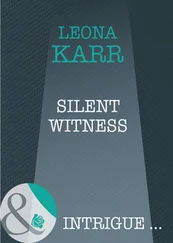Andrea headed toward the backyard
At the first window she came to, she cupped her hands against the glass and peered in, but the view was blocked by stacked boxes. She continued to the back door, where she knocked loudly.
She banged on the door two more times. Finally, when it was clear no one was going to answer, Andrea grabbed the doorknob and jerked it sharply. As it had in her childhood, the latch opened. She shook her head. How many times had she and her sister snuck inside after curfew using that very same trick?
She called out. “Vicki? It’s me. Are you in here?”
Andrea had been a paramedic for almost six years. She’d worked east Los Angeles and had gone into countless situations following 911 calls. Most of them were routine. Some of them were false alarms. But the minute she arrived on scene, she always knew if something was truly wrong. She wasn’t sure how, but she could tell. The air vibrated in an odd way and even the light seemed different to her. Her co-workers had teased her at first, then had come to depend on her.
She was two steps into the kitchen when she froze.
Something in this house was wrong.
Very wrong.
Dear Reader,
When I was in the first grade, I stopped talking. This will come as a surprise to those who know me now, but it is the truth. My family moved in the middle of the school year, and after I joined my new class, where I knew no one and didn’t really want to know anyone, I decided I would no longer speak.
My mother and father accepted the news with the same equanimity they gave almost every crisis in our household. No one got hysterical or rushed me to the doctor or even made a big deal out of my silence. I talked at home, you see; I just wouldn’t say anything at school.
As the weeks went past and I continued my boycott on words, my mother, God bless her soul, sensed my loneliness. Every day in my lunch box I would find a note from her. As I ate my ham sandwich—always on white bread with the crusts cut off, please—I would read her letters.
Looking back, I ask myself, how did she have the time? My sister was in high school then, my brother in diapers. Surely she had more important things to do than write her stubborn seven-year-old love letters.
If you were to ask me why I did what I did, I wouldn’t be able to explain, but by the end of that school year I decided to talk again. Thirty years passed before I learned other children do the same thing, and now there’s even a name for the condition. It’s called Selective Mutism. Strangely enough, all the articles I’ve read tell parents not to panic or make a big fuss. The experts say it will pass in time and it generally does.
When I sat down to write Silent Witness I knew I wanted to tell the story of a child who chose not to speak. In my book, Kevin has a much more traumatic reason to stay quiet than most children, but in a child’s world, everything is relative.
I hope you enjoy reading this story as much as I enjoyed writing it.
Kay David

www.millsandboon.co.uk
This is a special thank-you to all the dedicated teachers who have helped me through the years and continue to do so. Two in particular, Dan Chaney and Linda Winder, stand out because of their tireless efforts and endless patience. One taught me how to read and the other taught me how to write. I’ll always be grateful.
CHAPTER ONE
CHAPTER TWO
CHAPTER THREE
CHAPTER FOUR
CHAPTER FIVE
CHAPTER SIX
CHAPTER SEVEN
CHAPTER EIGHT
CHAPTER NINE
CHAPTER TEN
CHAPTER ELEVEN
CHAPTER TWELVE
CHAPTER THIRTEEN
CHAPTER FOURTEEN
CHAPTER FIFTEEN
CHAPTER SIXTEEN
CHAPTER SEVENTEEN
CHAPTER EIGHTEEN
THEY SAY YOU CAN’T go home again. But invariably something draws you back to the place where you grew up.
Andrea Hunt turned her Jeep onto Beach Road and wondered what that something was. A desire for reassurance? A quest for lost youth? The chance to do things over?
She didn’t know, but when she’d had to leave Los Angeles or lose her mind, Andrea had instinctively headed for Courage Bay. She had needed to heal her hurts and think about the direction her life should take. Home had been the only choice. The sparkling bay waters and sandy white beaches of southern California offered a refuge like no other.
Now, Andrea’s older sister, Vicki, had followed her lead and come back to Courage Bay, too. And her situation was truly awful.
Andrea had to regroup, but Vicki had come back because her life had fallen apart big-time. She’d gone through a disastrous marriage, then an even more disastrous divorce and now she had no job, no husband and no plans. The only bright spot in her life, she’d told Andrea, was Kevin, her six-year-old son.
Turning right, Andrea drove up the steep road to the house where she and her sister had grown up. A few years back, their mom and dad had bought a home higher up one of the cliffs, but they’d kept the bungalow fully furnished and rented it. When Vicki had announced her homecoming, the place had been empty, and they’d insisted she take it for herself and Kevin.
For a second, Andrea considered how it would feel to live inside those cool stucco walls again. Like all the other paramedics in Courage Bay, she stayed at the fire station while she was on duty, her standard shift that of the fireman, twenty-four on and forty-eight off. For her free days, she had leased a tiny house that had come with an even tinier backyard and patio.
But it might be nice to have her own house someday. Along with her own family. And a husband who would never cheat on her.
She gunned the SUV and made it up the final hill, reminding herself to stay in the moment, the advice of her L.A. shrink echoing in her head. She had seen the doctor for several months right after her breakup with Brian, her latest—and biggest—mistake. The therapy had helped but Andrea wasn’t fully convinced history wouldn’t repeat itself; the only kind of men she seemed to hook up with were the wrong kind.
Pulling up next to the curb, Andrea parked her Jeep behind Vicki’s still-packed Toyota and cut her engine. When she had phoned last night and volunteered to help her sister unpack, Vicki had eagerly accepted. She could use the extra hands, she had said. Then in her next breath, reverting to the roles they had each played before, she’d confessed she needed Andrea’s advice even more.
The two sisters hadn’t been close since Vicki had married. Although they’d both lived in L.A., distance and lifestyle had separated them, their personal and career paths taking them in completely opposite directions. When they’d talked, however, Vicki had sounded as eager as Andrea was to renew the relationship they’d had as kids. Back then, they had been almost inseparable, most strangers assuming they were twins because of their looks. The similarities had stopped there, though.
Unsure of herself and desperate to be popular, Vicki had constantly gone to Andrea for support and counseling, never quite sure of how to proceed, regardless of the fact she had been the older by two years.
Andrea had been just the opposite. Independent (exactly like their father, according to their mother) and stubborn (exactly like their mother, according to their father), she’d been the protector and leader.
Despite that background, Andrea didn’t feel much in charge of anything these days and any advice she might give her sister would be questionable, at best. Especially where men were concerned, be they six or sixty-six.
Читать дальше













